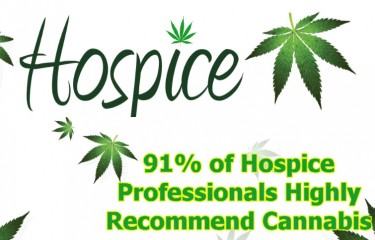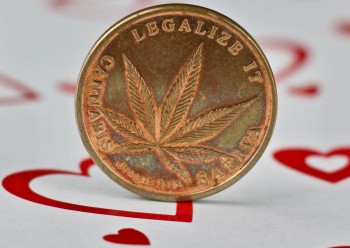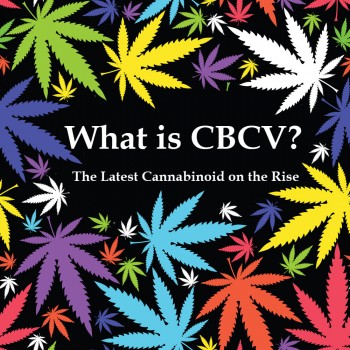
How Psychedelics Can Help Patients At The End Stage Of Life
Psychedelic drugs have long been associated with fun and recreation.
Tripping out to magic mushrooms, getting high on LSD or ketamine, spending hours in ecstasy thanks to MDMA.. these are experiences that can only be associated with positive and fun times, right? Of course! But that’s not all. While we also know that psychedelics can bring about spiritual and religious experiences, recent research and anecdotes have proven that psychedelics may also be an essential tool for patients of terminal illness – as they face the last few months or years of their lives.
It turns out that psychedelics actually have emotional as well as psychological benefits for terminally ill patients. Anxiety about their final day, or general death anxiety, is just one of the most common yet debilitating concerns that the terminally ill have to contend with. They also face a wide range of mental and emotional issues that can make daily life difficult, especially as their illness progresses.
Other issues that patients at the end stage of life experience include depression, suicidal ideation, fear, loss, grief, anger, frustration, regret, isolation, loneliness, and denial. The right spiritual and psychological care can help them move towards a space of peace and acceptance, instead, which are much more positive and helpful emotions. Using cannabis in hospice care is on the ballot in some states as well. How can psychedelics help with that?
Psychedelics Helps Reduce Severe Anxiety Among Terminal Patients
In 2016, Anthony Bossis co-authored a groundbreaking study of 29 cancer patients. During the study, he and his team discovered that just one dose of psilocybin greatly reduced anxiety and depression, which also contributed to a reduction in the hopelessness and demoralization caused by cancer among the patients. In addition, psilocybin “improved spiritual wellbeing, and increased quality of life,” they said.
In a Washington Post article on psychedelics and terminal illness, Bossis explains that exposure to psychedelics can help terminally ill patients feel a greater connection to something other than their physical selves. “After this experience, people often say, ‘I realized I’m not just my cancer. I’m not just this body. I’m something more enduring,’ he said.
There is likely a strong correlation between the spiritual experience brought about by psychedelics and the reduction of anxiety.
Psychedelics Reduces Fear Of Death
In 2022, Johns Hopkins Medicine released the results of a poll of over 3,000 adults which helped them compare near-death experiences with psychedelic drugs. The participants were divided into several groups: those who had non-drug related near death experiences, while the rest had psychedelic experiences with either LSD, ayahuasca, psilocybin, or DMT.
The researchers found interesting results, particularly that there were significant similarities among people’s attitudes towards death. Specifically, they found that just one treatment with psilocybin resulted in a sustained reduction in depression and anxiety among patients with terminal cancer. They found that around 90% of the participants, both who had near death experiences and psychedelic experiences, reported a decrease in death anxiety when they considered how their perceptions changed afterwards.
Meanwhile, many participants belonging to both categories said that their experience was among the top most significant and meaningful in their lives. They also admitted to having strong to moderate positive changes that affected their well-being and life purpose afterwards.
Psychedelics Reduces Depression Among Cancer Patients
In 2021, researchers at the Aquilino Cancer Center enrolled 30 cancer patients with major depressive disorder into a feasibility study. They were given a 25mg dose containing synthetic psilocybin called COMP360; each of them were also provided with one-on-one support with therapists over the course of their 6-8 hour treatment.
What followed was 8 weeks of monitoring to observe any changes in symptoms of depression. Half of the study’s participants were already taking antidepressants for their depression, and others were being treated for cancer. However, most of the patients didn’t have any previous experience with psychedelics. Using the Montgomery-Asberg Depression Rating Scale (MADRS), participants were asked to rate their depression symptoms through a survey.
While all 30 patients started with a 25.9 MADRS score, which reveals moderate depression, the period following psilocybin therapy reduced the score by 19.1 on average. “Cancer can ravage a patient’s entire life. In addition to attacking the body, cancer also impacts a patient’s mental and emotional wellbeing. It’s time we practice whole-person healing in oncology, which means meeting all the needs of our patients, both physical and psychological,” said Paul Thiambi, MD, one of the researchers in the trial.
Current Challenges Among Clinical Trials
Studying the benefits of psychedelic drugs for the terminally ill is still at its infancy. While the medical industry has surely made strides in this aspect, there’s also still a lot that we don’t know. Researchers face several obstacles that prevent them from making solid claims at this point, especially the fact that it’s difficult to ensure both participants and researchers alike have no clue they’re using the real thing or a placebo.
Furthermore, how psilocybin works in the human body is still largely mysterious. While we can certainly say that many terminally ill participants surely report less anxiety and depression after taking psychedelics, we aren’t sure how it works to cause that. There are some studies that point to stronger mystical or spiritual experiences, even among patients who weren’t actually religious, after taking psilocybin or other psychedelic drugs.
On top of that, there’s also the ethics and legalities that surround it. In most states, psychedelics resides in a legal gray area. Even if patients themselves want to access psychedelics, medical institutions and the law can make it challenging because of the ethical considerations of doing so.
Conclusion
No matter which way you look at it, psychedelics as a tool for terminally ill patients is indeed promising. Everyone wants to meet their final days with as much grace as possible.
Thanks to the promise of psychedelics, we may be looking at a big shift in how traditional end-of-life care is approached. Terminally ill patients don’t have to go living their last few months under psychological and emotional distress; a small amount of psychedelic treatments could go a long way. One thing’s for sure: use must be properly managed in order to maximize the drug’s benefits and safety.






